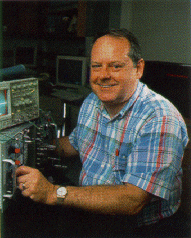Dr. James Reidy
 Office: 203B Lewis Hall Email: reidy@phy.olemiss.edu Phone: (662) 915-5322 Degrees Earned
Experience
Memberships
Research InterestsThe major part of my research activity deals in the experimental study of quark-quark interactions, electroweak interactions and B physics. This research has resulted in detector development for the Superconducting Super Collider (SSC), Large Hadron Collider (LHC) at CERN, the SLAC Large Detector (SLD) and the BaBar detector at SLAC. Most of my experimental program is carried out at particle accelerators at CERN (European Center for Nuclear Research), Fermilab, and SLAC (Stanford Linear Accelerator Center) with data reduction and analysis being done in the laboratory on campus. Other research activities include studies on the long-term, low-level radiation damage effects on CsI (T1) crystals and the design of optical components for the hadron calorimeter in the CMS (Compact Muon Solenoid) detector at the LHC. |